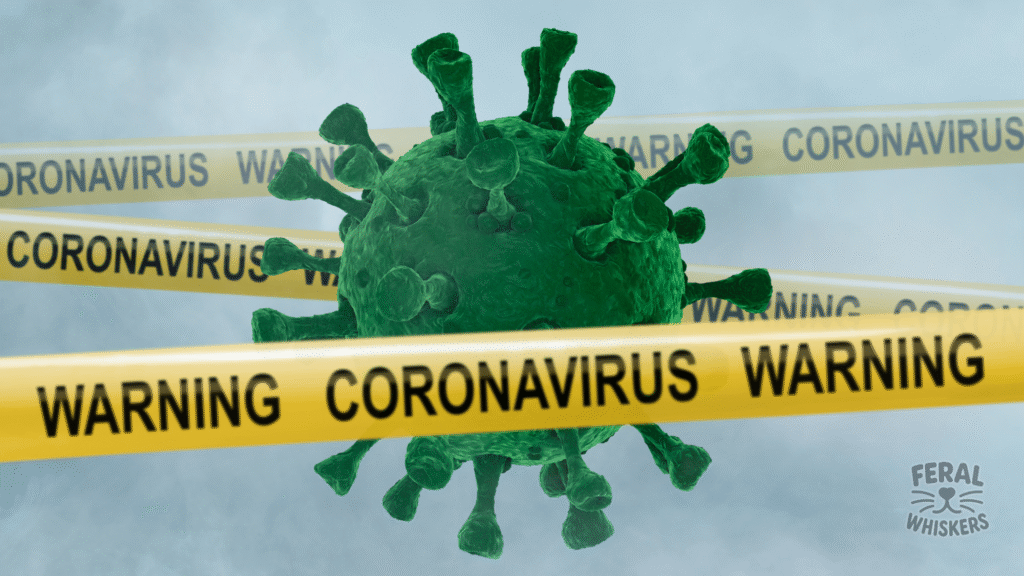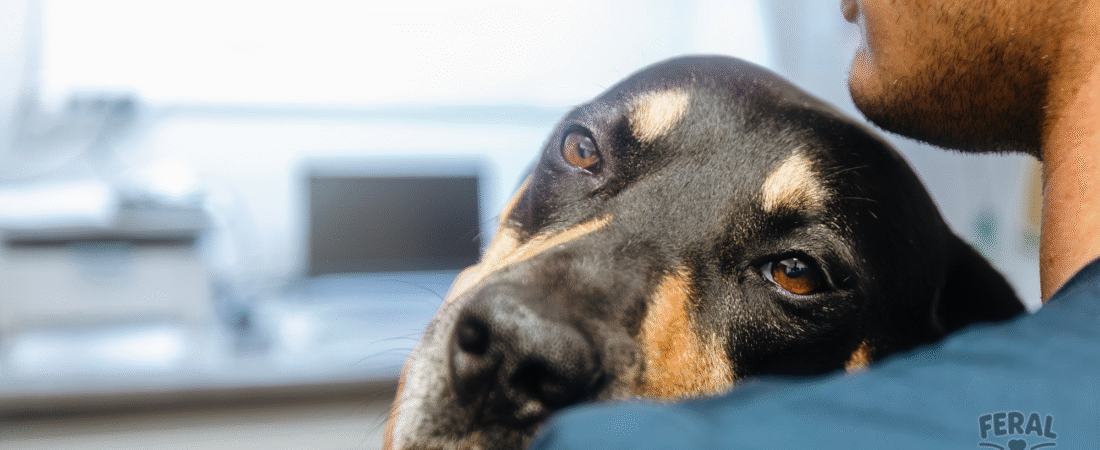What Dog Parents Should Know

When people hear “coronavirus,” they usually think of COVID‑19 in humans. But dogs have their own version called Canine Coronavirus (CCoV).
⚠️ Important: CCoV is not the same as human COVID‑19.
They are both coronaviruses, but CCoV affects dogs (especially their stomach and intestines), while SARS‑CoV‑2 causes human COVID.
Most cases of CCoV are mild and short‑lived, but puppies and stressed, crowded dogs may develop more severe illness.
How It Spreads
- Dog‑to‑dog contact (licking, sniffing, playing).
- Contaminated poop or surfaces (bowls, toys, bedding).
- Especially high‑risk in kennels, shelters, or crowded breeding facilities.
Unlike parvo, CCoV doesn’t live long in the environment, but it spreads easily in close quarters.
Symptoms to Watch For
- Sudden diarrhea (often yellow or orange, with a foul odor)
- Vomiting
- Loss of appetite
- Mild fever
- Lethargy or depression
- Dehydration if fluid loss is severe
Symptoms usually develop within 1–3 days of infection and last less than a week.
When to See a Vet 🩺
Most healthy adult dogs recover from CCoV with rest and fluids, but you should see a vet if:
- Your puppy or adult dog has persistent vomiting/diarrhea lasting more than 24 hours.
- There is blood in the stool.
- Your dog refuses food and water for a day or more.
- Signs of dehydration appear (sunken eyes, dry gums, skin that doesn’t bounce back when gently pinched).
- Your dog seems very lethargic, weak, or collapses.
- Symptoms worsen instead of improving within 2–3 days.
- The diarrhea or vomiting is happening in puppies under 12 weeks (they can decline quickly).
If in doubt → always call your vet. Even mild cases can look like parvovirus, which is far more dangerous.
Diagnosis
Vets diagnose canine coronavirus through:
- Stool tests to detect virus particles.
- Exam + ruling out parvo (since symptoms overlap).
Treatment
There’s no medicine that kills the virus itself — care focuses on keeping dogs stable until they fight it off.
- Fluids (oral rehydration or IV if severe).
- Anti‑nausea or diarrhea meds for comfort.
- Probiotics to restore gut bacteria.
- Bland diet (chicken, rice, pumpkin, or recovery diets).
Most healthy dogs get better within a week. Puppies need closer monitoring, as dehydration can be life‑threatening.
Prevention
- Vaccines for CCoV exist, but they’re considered “non-core.” Vets mainly recommend them for dogs in kennels or high‑risk environments.
- Good hygiene: disinfect bowls, clean up poop immediately, sanitize kennels and toys.
- Avoid overcrowding: limit contact with large numbers of unfamiliar dogs in poor conditions.
Expectations and Long-Term Results
- Most dogs fully recover with no long‑term effects.
- Puppies may take longer to bounce back; dehydration is the biggest risk.
- Unlike distemper or parvo, coronavirus usually doesn’t cause lasting organ or nerve damage.
Facts
- First discovered in 1971 in German military dog kennels.
- Causes mild illness alone, but when combined with parvovirus, can lead to worse disease.
- Named “corona” because the virus looks like a crown under the microscope.
Common Questions from Fur Parents
Can my dog give me coronavirus?
No — CCoV does not infect humans.
Can dogs get COVID‑19 from people?
Rarely. A few have tested positive after close contact, but they don’t spread it back to humans.
How do I know if it’s parvo or coronavirus?
Parvo usually causes bloody diarrhea, severe vomiting, and rapid decline. CCoV is typically milder, but only a vet test can confirm.
Does my dog need the coronavirus vaccine?
Not typically. Ask your vet if your dog is frequently boarded or lives in a high‑risk setting.
Final Takeaway
Canine coronavirus is a mild, self‑limiting stomach virus in most dogs, but it can hit puppies hard. The key steps for fur parents are:
✔ Know the symptoms.
✔ Seek the vet if vomiting, bloody diarrhea, dehydration, or worsening weakness appear.
✔ Support recovery with fluids, bland diet, and rest.
✔ Prevent with hygiene, avoiding poor kennels, and vaccines in high‑risk groups.
And the most important reassurance: your dog cannot give you COVID‑19.

